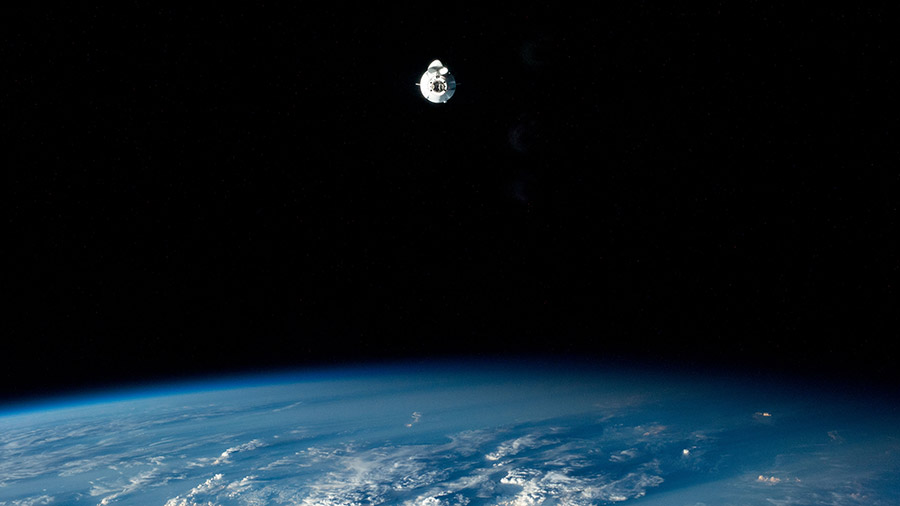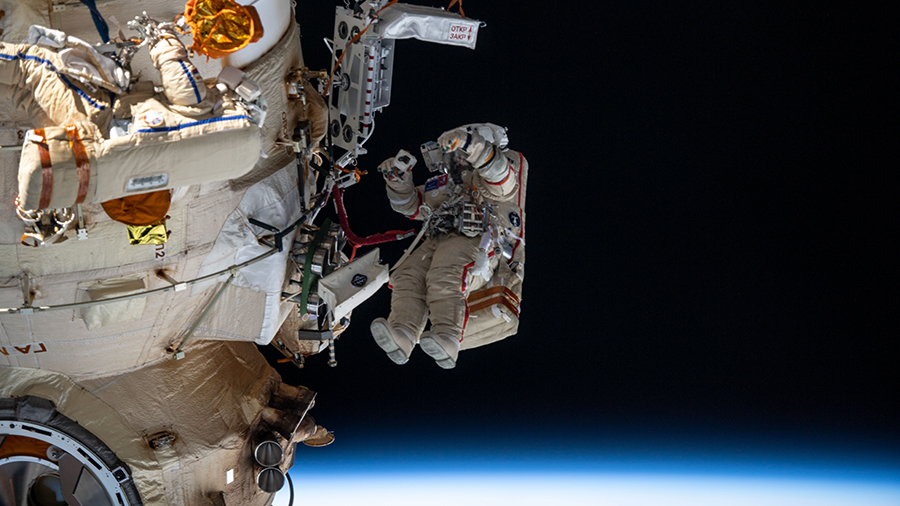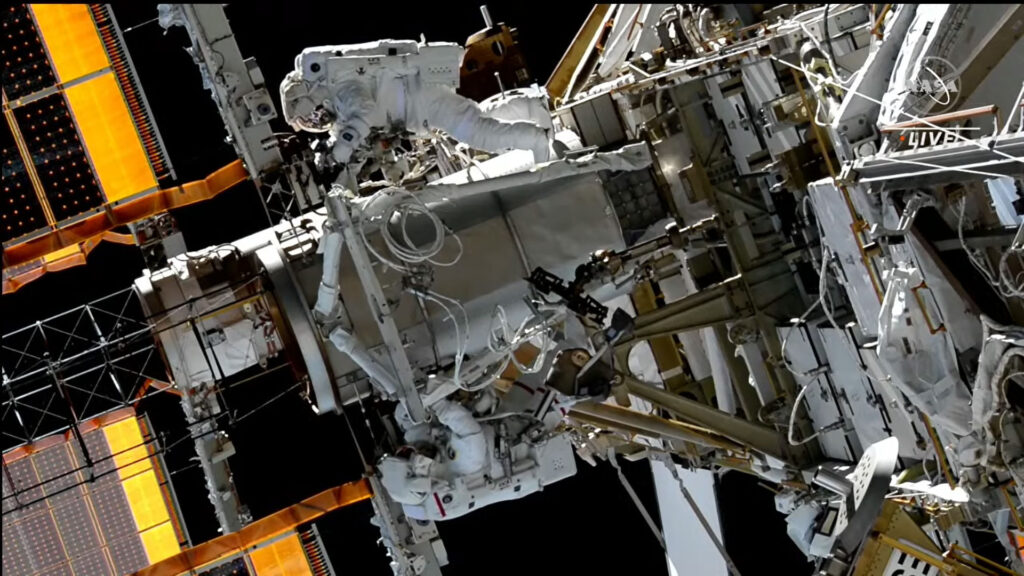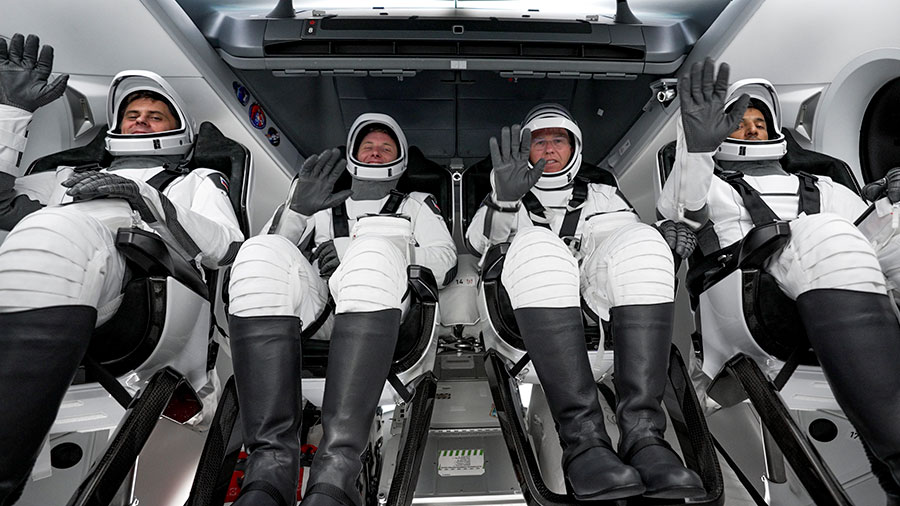
NASA and SpaceX officials have given the “go” for the science- and cargo-packed Dragon cargo craft to undock from the International Space Station and return to Earth. While the Expedition 69 crew finalizes Dragon cargo operations, preparations are still underway for a busy period of spacewalks set to begin on Tuesday.
An array of experiment hardware and research samples will return to Earth for analysis after Dragon undocks from the Harmony module’s forward port at 11:05 a.m. EDT on Saturday. Dragon will parachute to a splash down off the coast of Florida several hours later where support personnel from NASA and SpaceX will retrieve the vehicle. The 4,300 pounds of return cargo packed inside Dragon will then be extracted at NASA’s Kennedy Space Center, where the completed research and station hardware will be shipped to scientists and engineers around the world for investigation and examination.
NASA Flight Engineer Frank Rubio is wrapping up one final space biology study today, preparing scientific samples for observation back on Earth so researchers can understand how the human body adjusts to living long-term in microgravity. Stephen Bowen and Woody Hoburg, both from NASA, are also stowing a variety of research samples inside portable science freezers that can be launched into space, installed on the station, then returned inside the Dragon spacecraft.
Other science experiments are still ongoing aboard the orbiting outpost, including a cardiac study exploring ways to offset microgravity’s effect on heart cells and tissues. UAE (United Arab Emirates) Flight Engineer Sultan Alneyadi spent Friday morning in the Kibo laboratory module treating samples for the Engineered Heart Tissues-2 experiment. Using Kibo’s Life Sciences Glovebox, Alneyadi conducted the research operations that may help doctors treat, as well as prevent, space-caused heart conditions and Earth-bound cardiac disorders.
The orbital residents are also gearing up for several spacewalks to move hardware outside the space station. Commander Sergey Prokopyev and Flight Engineer Dmitri Petelin, both Roscosmos cosmonauts, will work over three spacewalks, the first beginning at 8:30 p.m. on Tuesday, to move a radiator and an experiment airlock from the Rassvet module to the Nauka science module. The duo spent Friday organizing their spacewalk tools and practicing their external maneuvers on a computer.
Roscosmos Flight Engineer Andrey Fedyaev began Friday attaching a sensor cap to himself then simulating piloting a spacecraft on a computer for a study exploring futuristic, piloting techniques on planetary missions. Afterward, he tested laptop computers inside the Zvezda service module then powered down Earth observation hardware in the Harmony module.
Learn more about station activities by following the space station blog, @space_station and @ISS_Research on Twitter, as well as the ISS Facebook and ISS Instagram accounts.
Get weekly video highlights at: https://roundupreads.jsc.nasa.gov/videupdate/
Get the latest from NASA delivered every week. Subscribe here: www.nasa.gov/subscribe




